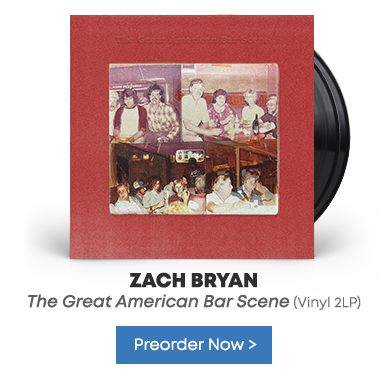Exotic, adventurous and a little cartoonish – check how the orchestra at times mimics the sounds of the wild – John Williams' score to the 1981 blockbuster Raiders of the Lost Ark remains a masterpiece of cinematic sound. The work has a life of its own, often reflecting the film's over-the-top nature while possessing a tinge of unpredictability in its approach. While many know the inherent joy and swashbuckling nature of the main theme surrounding Harrison Ford's Indiana Jones, much of what Williams does in Raiders of the Lost Ark relates to creating mystery – and the sense we are visiting a world only film can take us. The soundtrack receives a long-overdue vinyl reissue this week, which prompted us to look back at five of Williams' iconic scores.
Catch Me If You Can
The brisk, lithe, 2002 crime film Catch Me If You Can transports viewers to the early 1960s. Williams' score digs deep into history, the work drifting between symphonic traditionalism and jazzy improvisation – and recalling a time when saxophonists such as John Coltrane redefined what the instrument could accomplish. The movie's high point just may be its opening credits. Amid slick animation that channels contemporary art of the 60s, a sax scurries around the arrangement like a mouse dodging traffic. The segment serves as an overture, with unobtrusive finger snaps and dusky detours echoing the fare heard in nightclubs of the era. Like the Steven Spielberg film from which it comes, the music has a spring in its step as it bounds from one shadow to another.
Jaws
Few soundtracks are as unmistakable as Williams' work on this 1975 Spielberg thriller. Simply reading the name should bring instant sonic recognition. The pattern: ba-dum. The instrument: a tuba. The tone: suspense. Williams' score does what the film often doesn't – that is, it allows us to see the shark. Unrelenting and ever so gradually quickening in its repetition, the main theme transforms the shark from a menace into a character. Based on the intensity of the music, we always know exactly where the fish is located. But the score is more than just one foreboding anthem. On land, Williams' music often takes on more fanciful tones with light-stepping strings and spirited horns. At sea, Williams amps up the tension with ominous sounds as violins race around weighty bass notes that exemplify the shark.
Close Encounters of the Third Kind
Another collaboration with Spielberg, Williams' work on this 1977 sci-fi film alternates between sounds of fear and themes of wonder. A spacey otherworldliness informs the primary themes, in which strings are stretched thin and then held. It's musical apprehension, occasionally broken up with an orchestral burst, and captures a sense of the unknown and anxiety toward it. Yet the score's greatest appeal pertains to its ability to create its own language – one as musical as it is mathematical. If Williams in Jaws uses two notes to mimic fright, here he uses five to convey astonishment. In the film, humans and extra-terrestrials communicate via a Simon Says-like lightshow. On record, the score hints at synthetic and electronic influences seeping into Williams' approach. But even when the composer works with alien sounds, he does so with a symphonic grace.
Superman
Today, there are more superhero movies than ever, but with few exceptions (see Tim Burton's work on Batman), most do away with robust themes and instead reflect the wild action on the screen. Yet everything about this 1978 take on Superman from director Richard Donner signifies an approach to comic-book films rarely utilized today – from the campy attitude to Williams' triumphant score. His "Superman March" ranks among his most classic works. It launches with a fanfare seemingly lifted from a sci-fi film, but soon builds to more earthy territory, with an army of trumpets heralding the arrival of our hero as if he's an Olympic champion. Come for the victorious main theme, but stay for the exaggerated silliness – think lots of wind instruments – that accompanies the villains.
Star Wars
Even in his advanced age, Williams stages a near-yearly concert in Los Angeles at the Hollywood Bowl. It's a relatively attentive affair, at least until the first recognizable notes from Star Wars are sounded. Tens of thousands of people immediately stand and raise plastic lightsabers to the sky. It's an impressive sight, and one that not only indicates the lasting impact of Star Wars but also shows that a composer can be treated as something of a rock star. Perhaps no film score is as recognizable as Williams' work on the Star Wars saga seeing as the artist gave George Lucas' creation its operatic majesty. It's not just that each character has a theme, but we know the mindset of those on the screen by the tone in which the music gets delivered. And it's wildly fun, from the flamboyantly foreboding feel of "The Imperial March" to the adrenaline rush of the brightly tinted horns and strings of the opening credits.
2nd Jun 2017




































